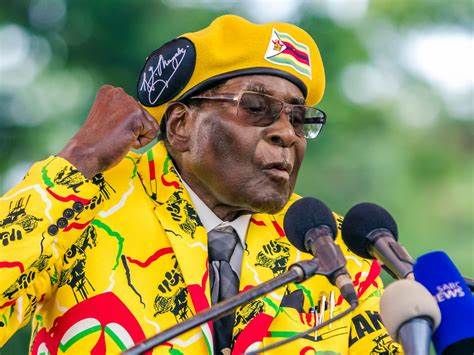
In the annals of African history, few figures loom as large or provoke as much debate as Robert Mugabe, the former president of Zimbabwe. Mugabe, who passed away in 2019, was a complex and controversial figure, hailed by some as a liberation hero and denounced by others as a ruthless dictator. But what is the true legacy of this enigmatic leader?
Born in 1924 in what British-ruled Southern Rhodesia was then, Mugabe rose to prominence as a guerrilla leader in the fight against white minority rule. After years of struggle, Zimbabwe gained independence in 1980, and Mugabe became the country's first black prime minister, later assuming the presidency in 1987.
Mugabe's early years in power were marked by efforts to reconcile the country's racial divisions and promote social welfare programs. Land reform was a key focus, with Mugabe overseeing the redistribution of land from white farmers to black Zimbabweans. While this move was popular among many black Zimbabweans, critics argued that it was implemented in a manner that was corrupt and led to economic turmoil.
As his tenure continued, Mugabe's rule became increasingly authoritarian. Opposition parties were suppressed, independent media was muzzled, and political dissent was met with violence. The economy faltered, with hyperinflation reaching unprecedented levels and basic services becoming scarce.
The turning point in Mugabe's rule came in the early 2000s when he launched a controversial land reform program that saw the seizure of white-owned farms. This move, coupled with allegations of election rigging and human rights abuses, led to widespread international condemnation and sanctions against Zimbabwe.
Despite his increasingly autocratic rule, Mugabe remained a hero to many in Africa, seen as a symbol of resistance to Western imperialism. He was praised for his stance against colonialism and his efforts to empower black Zimbabweans. However, his critics argue that his legacy is one of economic mismanagement, political repression, and human rights abuses.
In conclusion, the question of whether Robert Mugabe was a dictator, or a revolutionary is a complex one, and opinions are likely to remain divided. While he played a crucial role in the liberation of Zimbabwe and was initially hailed as a hero, his later years in power were marred by corruption, authoritarianism, and economic decline. Ultimately, history will judge Mugabe's legacy, but his impact on Zimbabwe and Africa as a whole is undeniable.